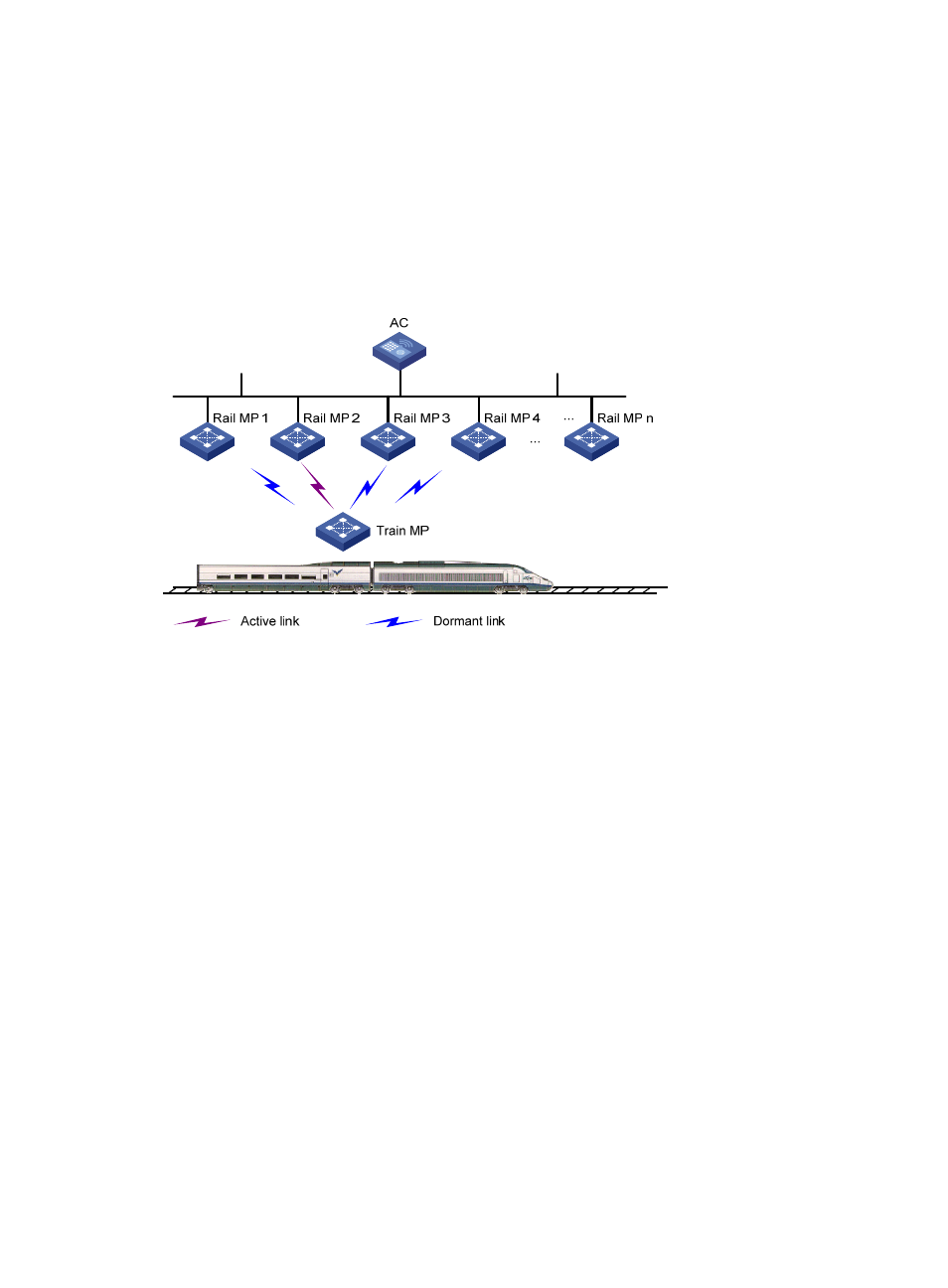Mobile link switch protocol, Terminology of mlsp, Mlsp advantages – H3C Technologies H3C WX3000E Series Wireless Switches User Manual
Page 185: Operation of mlsp

173
Mobile link switch protocol
At any given time, an active link should be available between a rail MP and a train MP for data
communication. MLSP was developed to create and break links during train movement.
Terminology of MLSP
As shown in
, when the train is moving, it needs to break the existing active link with rail MP 2
and create a new active link with another rail MP.
Figure 90 Diagram for MLSP
•
Active Link—Logical link through which all data communication from/to a train MP happens.
•
Dormant Link—Logical link over which no data transfer happens, but it satisfies all the criteria for
becoming an active link.
•
Proxy device—A device such as a server that is connected to a train MP for receiving traffic.
MLSP advantages
1.
MLSP makes sure that the link switch time is less than 30 ms.
2.
MLSP works well even if the chipset gets saturated at high power level.
3.
MLSP achieves zero packet loss during link switch.
Operation of MLSP
MLSP establishes multiple links at any given time between a train MP and multiple rail MPs to provide link
redundancy, ensuring high performance and good robustness for the network.
The following four parameters are considered by MLSP for link switch. Based on the deployment, all these
parameters are tunable to achieve best results.
•
Link formation RSSI/link hold RSSI—This is the minimum RSSI to allow a link to be formed and held.
Therefore, the minimum RSSI must be ensured at any given point in the tunnel. Otherwise, the error
rate can be very high.
•
Link switch margin—If the RSSI of the new link is greater than that of the current active link by the
link switch margin, active link switch will happen. This mechanism is used to avoid frequent link
switch.
- H3C WX5500E Series Access Controllers H3C WX3500E Series Access Controllers H3C WX2500E Series Access Controllers H3C WX6000 Series Access Controllers H3C WX5000 Series Access Controllers H3C WX3000 Series Unified Switches H3C LSWM1WCM10 Access Controller Module H3C LSUM3WCMD0 Access Controller Module H3C LSUM1WCME0 Access Controller Module H3C LSWM1WCM20 Access Controller Module H3C LSQM1WCMB0 Access Controller Module H3C LSRM1WCM2A1 Access Controller Module H3C LSBM1WCM2A0 Access Controller Module H3C WA3600 Series Access Points H3C WA2600 Series WLAN Access Points
